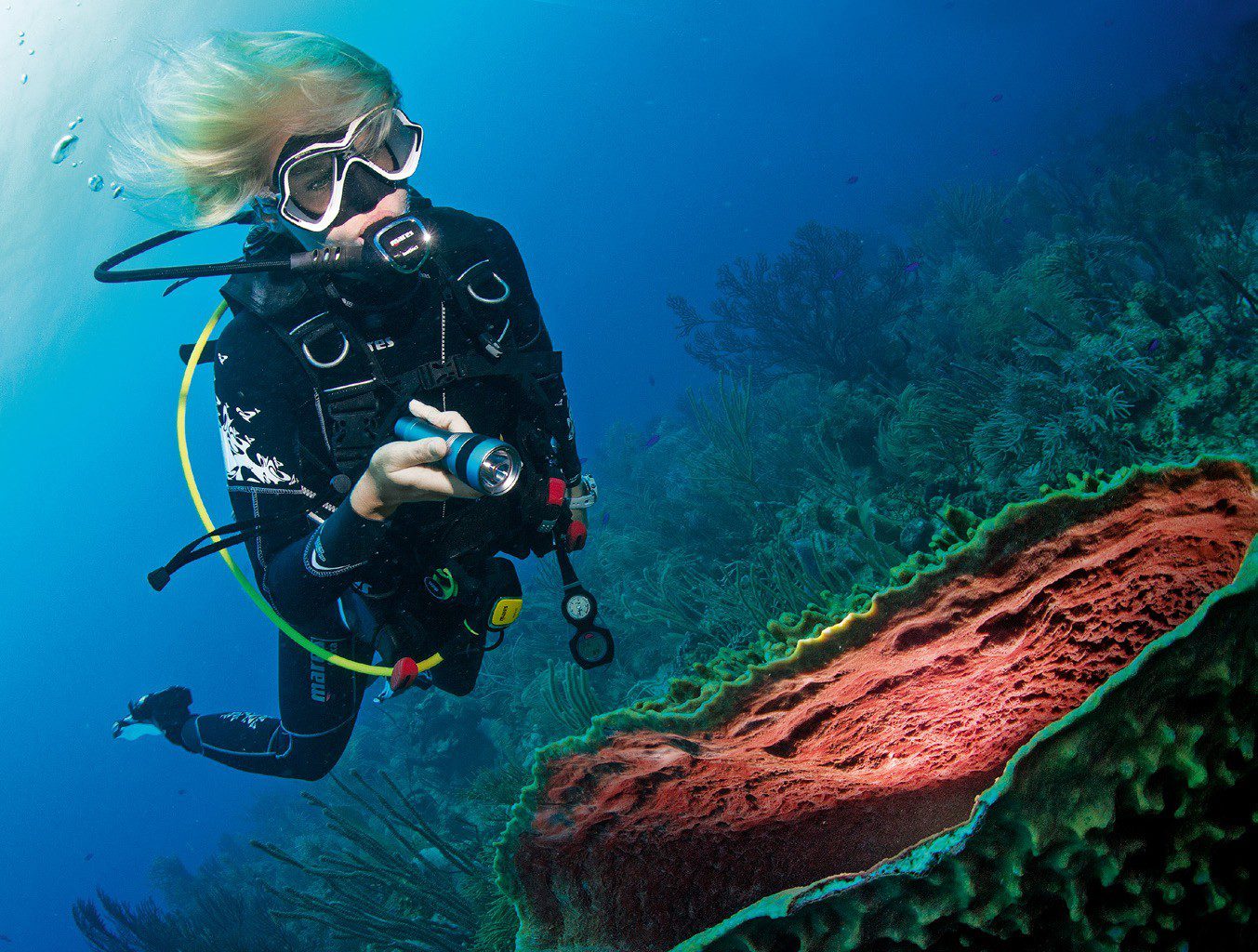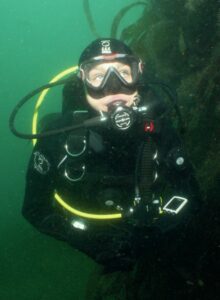Many divers learn how to do a buoyancy check in their Open Water course, but forget to put this skill into practice after they become certified and end up just guessing on how much weight they actually need.
It is good to do a buoyancy check when diving somewhere new or when diving in new equipment, to ensure a stress-free dive, and to avoid problems that improper weighting can bring.
How to figure out how much weight you need for scuba diving
To start a buoyancy check you will have to estimate what you might need to enter the water, and then from there you can adjust as necessary.
A general rule to follow is to add roughly ten percent of your body weight to your weight system. This will give you a good starting point.
Some factors will make a difference to how much weight you will need. For example, diving in freshwater or saltwater (you will need extra weight for salt water), and how thick your wetsuit is (a 7mm wetsuit is a lot more buoyant than a 3mm wetsuit and therefore need more weight added to counteract the extra buoyancy).
Weight systems – Two Common Choices
- Weightbelts
- Integrated weight systems
It is good to experience both ways of wearing your weights and decide which feels most comfortable for you, before buying your own equipment.
When/where to perform a buoyancy check
The end of a dive is the best time to perform a buoyancy check, when your tank is emptier. This is because it is important to be able to stay underwater for a safety stop, and estimating your weight with a full tank might not give you enough weight to keep you under when the tank becomes lighter. It is better to have a little extra to start with, than to not have enough at the end.
How to perform a proper buoyancy check
Let’s refresh your memory:
First, don all of your diving equipment, including the estimated amount of weight. Enter the water with a full BCD and make sure that you are too deep to be able to stand.
Deflate your BCD fully while the regulator is in your mouth and you are breathing normally. When the BCD is empty, you should still be floating on the surface (at about eye level). Finally, breathe out fully and you should sink under the water.
If you sink under the water while holding a normal breath, take off some weight and try again. If you are still floating when you exhale fully, add a little weight and try again.
Why good buoyancy control is important
- Visibility: Divers with poor buoyancy control often kick up sand or silt from the bottom, this creates a cloud and affects the clarity of the water.
- The environment: We love our fishy friends and we do not want to destroy their homes with our fins or hands. Poor buoyancy control could mean kicking or hitting corals or animals under the water.
- Safety: Poor buoyancy could lead to diving emergencies. For example, making an uncontrolled ascent or missing a safety stop, becoming separated from your buddy or dive group, or accidently touching hazardous marine life
- Increased bottom time: Good buoyancy can improve the rate at which you consume your air. This is because you are not expelling so much energy from kicking and sculling, and therefore do not get out breath as easily.
This article was originally published in Scuba Diver ANZ #54.
Subscribe digitally and read more great stories like this from anywhere in the world in a mobile-friendly format. Link to the article









Nice little article good refresher points